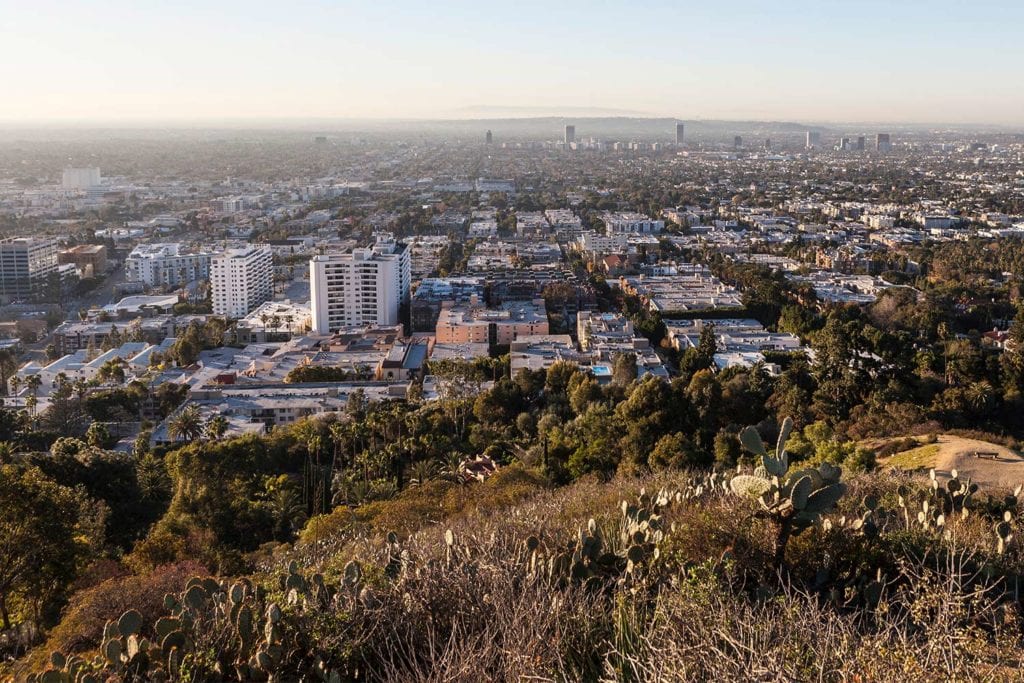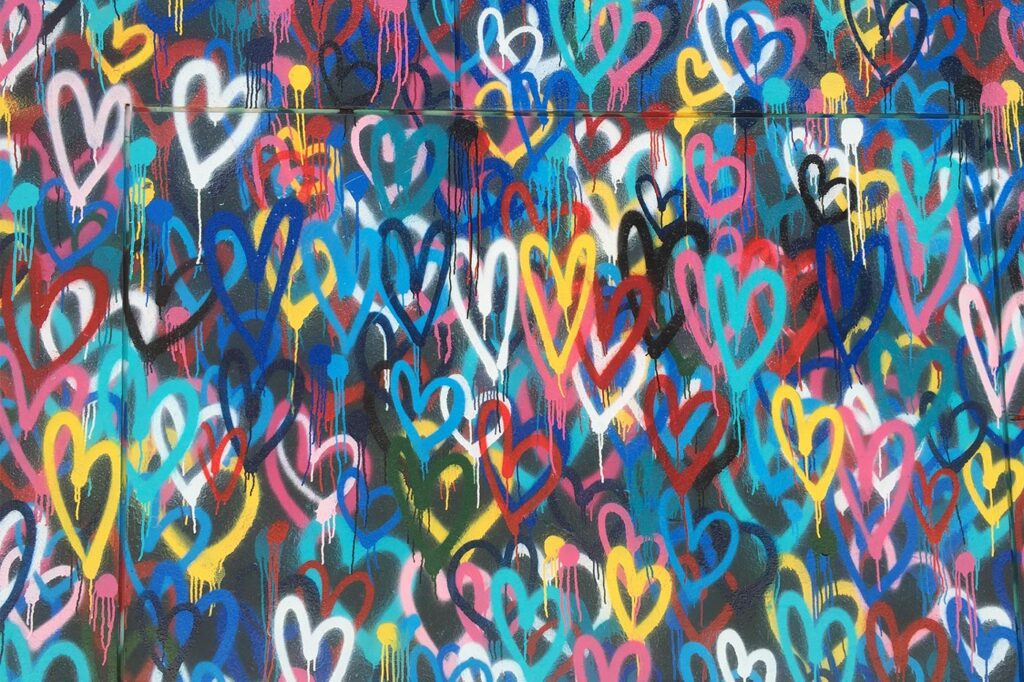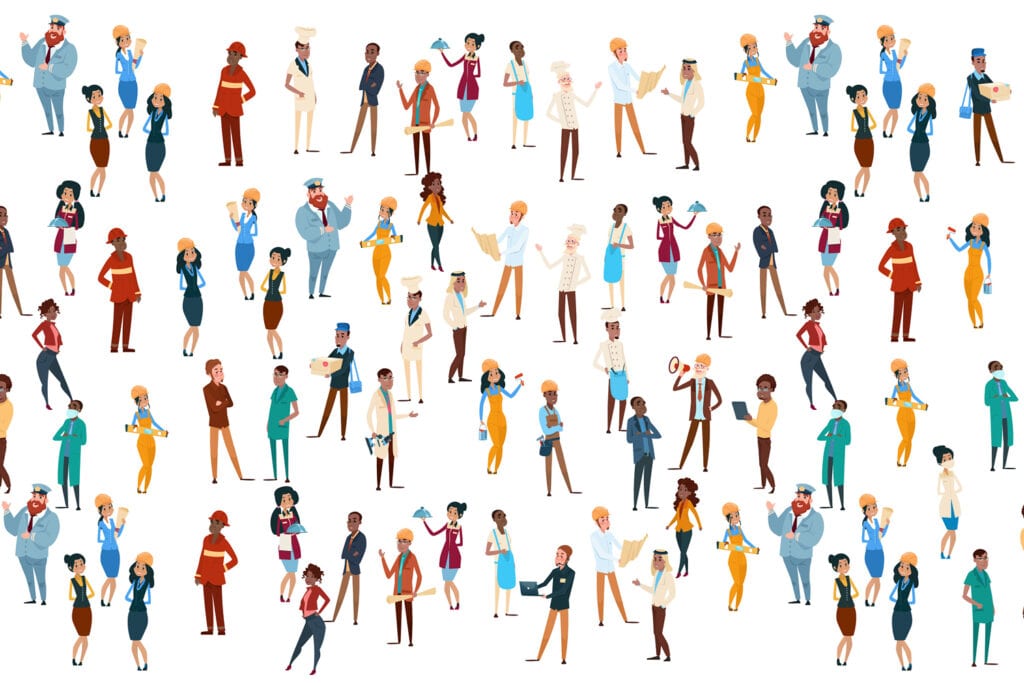Embedding social justice in climate action
As the heart of LGBTQIA+ culture in Southern California, West Hollywood was home to the world’s first permitted Pride parade in 1970, and today nearly 40% of the population identifies as lesbian, gay, bisexual, or transgender.
In 2020-2021, Buro Happold worked with West Hollywood leaders to develop its climate action and adaptation plan, in partnership with Pueblo Planning and Inner & Outer Engagement.
This blog post is adapted from plan documents available for download here.

Social Justice and the Climate Crisis
Climate change has environmental, social, and economic implications. Climate hazards have the potential to affect all people, but the ways in which their consequences are experienced are heavily shaped by demographic factors like race, socioeconomic status, gender identity and sexual orientation, housing status, and more.
Frontline communities are those who experience “first and worst” the effects of climate change include, but are not limited to, LGBTQIA+ individuals, youth, older adults, women, Native American people, Black and non-Black people of color, documented and undocumented immigrants, and people experiencing houselessness. Climate action through the lens of social justice recognizes and addresses the inequities and disparities that affect a community’s resilience to risk.

West Hollywood’s History of Social Justice
The City of West Hollywood grew out of a coalition of LGBTQIA+ activists, seniors, and tenants’ rights organizers who envisioned a progressive city with a policy agenda rooted in protecting the rights of residents of all ages, abilities, racial and ethnic backgrounds, gender expressions, and sexual orientations. At the time of the city’s incorporation in 1984, it was the first municipality with a majority-LGBTQIA+ city council.
As defined through the 2003 West Hollywood Strategic Plan (Vision 2020), West Hollywood promotes “mutual respect, courtesy, and thoughtfulness” and celebrates the diversity of its community by recognizing the personal dignity in all individuals.
In line with this mission, West Hollywood was the first city to call for marriage equality, the first city to declare itself a sanctuary city for undocumented residents, and the first to take on the label of a “pro choice” city.
The City’s Status of Women Report featured an extensive engagement process with West Hollywood’s female-identifying residents to capture how social, economic, and health outcomes differ across genders. The Transgender Advisory Board, one of the first of its kind, addresses matters relating to advocacy on behalf of transgender rights such as education, community awareness, and empowerment.
For a city with less than a 2 square mile footprint, West Hollywood’s leadership in human rights advocacy belies its modest borders. Landmark ordinances banning the discrimination of people based on their sexual orientation or their HIV/AIDS status served as inspiration for municipalities all over the nation.
Affirming the city’s status as a refuge for LGBTQIA+ immigrants and asylum-seekers, the Social Services Division produced a guidebook of services and resources for those lacking critical support networks.
West Hollywood sponsored one of the country’s first AIDS awareness campaigns in 1985, and its actions through grants, social services, and employment protection is recognized as a model for AIDS response all over the world. West Hollywood has been a leader in the fight for marriage equality, passing a resolution in support of same-sex marriage and performing hundreds of civil ceremonies for couples.

What We Heard
Throughout the course of our teams stakeholder outreach activities, local leaders discussed their desire to see LGBTQIA+ communities at the forefront of climate action initiatives, to continue West Hollywood’s founding legacy as a safe community for queer-identifying people.
They noted that this legacy is threatened by rising costs, as LGBTQIA+ legacy businesses are being priced out and forced to close and a housing becomes too expensive for younger people who have been otherwise excluded from less accepting communities.
Additionally, there was excitement for thinking about West Hollywood as a campus-like environment, where people could safely travel by a variety of travel modes. We heard that micromobility and rideshare services like the “fun, flirtatious, and light-hearted” trolley service known as The PickUp – play an important role in transportation safety, especially for transgender, femme, and BIPOC people who have experienced brutality and violence by police and cisgender/heterosexual men.

Climate change, including the increased frequency of disasters, can cause anxiety-related responses, post-traumatic stress disorder, adjustment disorder, and depression. The majority of the people we engaged in 2020 described experiencing depression, stress, and anxiety as a result of the constant living in fear and the social and economic impacts of the pandemic.
Participants described the detrimental impacts created by not being able to see loved ones and attend exercise or social gatherings. In addition, they voiced the loss of frequenting public spaces such as libraries due to closures or Plummer Park and other outdoor spaces due to concern of coming into contact with someone who is not masked or being in large crowds.
Those who were able to access green space by foot felt a little more comfortable doing so. These individuals expressed how therapeutic and important these spaces have been for their mental and emotional health.
What WeHo Climate Action will do
West Hollywood’s commitment to the dignity and respect of all people extends to its climate action and adaptation agenda. WeHo Climate Action promotes public realm investments that are responsive to the needs of all residents, no matter age, gender, or ability.
The expansion of multi-modal zero carbon transport – including the exploration of a Micro Transit pilot program – will lead to greater mobility and opportunity for all people. The deployment of new cooling and permeable surfaces will prioritize areas with high proportions of older adults and low-income individuals.
Financial and technical assistance to support decarbonization and electric vehicle readiness ensures access to new technologies is not restricted by socioeconomic status.
West Hollywood occupies unceded Tongva territory; for generations the Tongva people stewarded this land, building an ancestral knowledge of practices that benefit all its inhabitants: people, plants, and animals.
Therefore, future climate actions must incorporate Tongva leadership, and West Hollywood is committed to building a relationship with the Tongva that includes advocating for and resourcing regional tribal fire management practices, leading soil restoration efforts, and transitioning green spaces to native and edible landscapes.


